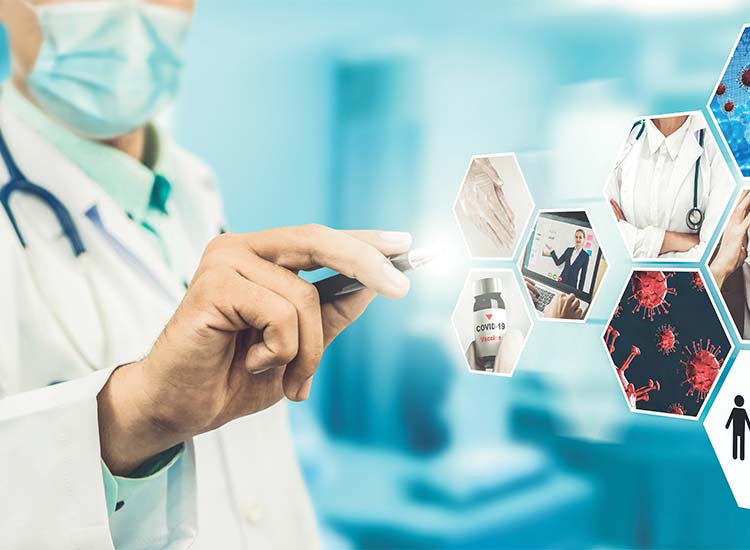Hotel Health, Safety & Security – the new normal
The world changed overnight; safety and security are viewed through a very different lens from just months ago and change daily.
People are as frightened of falling victim to disease as they are of terrorist attack. The hotel industry has faced the full force of the impact.
What needs to be done now and what will be the new normal?
We are really only beginning to appreciate the pandemic’s impact on traditional approaches to security. We have always pitted ourselves against malignly motivated individuals whose objectives involve causing harm or loss to others. Now, as well as continuing to out-think our traditional adversaries, we have to protect our clients, staff, the public and our properties against unwitting agents who may pose a greater risk than many of our conventional security opponents.
Health Security perimeter
The first challenge is identifying the innocent virus carrier. Until tamper-proof assurance is available that a person is virus-free, security planning must assume that everyone is a potential conduit. The emerging concept is of a health security perimeter that goes further, requiring that people, animals and objects must be screened as a condition of entry. Pre-preparing guests, staff and visitors about this approach is essential, but most people have already demonstrated their willingness to moderate their convenience for safety. They are familiar with security protocols in airports and public places, and are now used to mantras like ‘stay at home’, so it is a small step for travellers and guests to co-operate with the philosophy of a health security perimeter and a ‘screen it or clean it’ maxim.
Extend the perimeter
The screening policies need to positively extend the perimeter beyond the boundary of the hotel. For example, trusted suppliers will demonstrate and document a contamination-free chain of custody to a specific hotel. If not, their goods are either not allowed in or ‘quarantined’ in a controlled area where they can be subject to hygiene protocols.
What would have been objectionable just a few months ago now seems inevitable; for example, internal contact-tracing, a key step to gain the confidence of the authorities. An essential outcome of a contact-tracing procedure is the ability to alert those at risk following contact, and the targeting of hygiene and cleaning efforts. CCTV usage takes on an added dimension with this purpose in mind.
Valuing hotels as bases to explore new surroundings, travellers will cross our health security perimeter on numerous occasions during their stay. Screening on each entry will be required but within proportionate bounds.
Ground rules for guests and staff
Hotels will wish to revisit policies and procedures, training and T&Cs to ensure that new measures are explained and the ‘ground rules’ for entry are understood before guests arrive.
Staff involvement in health security will be key. Yet, staff latitude to move around within the health perimeter may make it proportionate to require that they undertake COVID-19 testing but can this be compelled, and results disclosed?
Where it is a contractual term then, arguably, yes; but where not, challenges may arise. Temperature screening at the health perimeter and a written undertaking that the staff member or a household member has no COVID-19 symptoms should be the norm before commencing duty inside the health perimeter.
Meeting the needs of all
Undoubtedly, this disease hits the disadvantaged hardest. Any thoughtful security strategy must meet the needs of people who rely on mobility aids, wheelchairs and guide dogs. Respecting dignity for all whilst undertaking the deadly serious work of health security screening will be a mark of accomplishment in this new security field.
New strategies and tactics must be effective yet delivered with a style intended to be welcoming and hospitable. The impression of a hotel as part-med lab/part-prison will not work, but neither will mere lip service to health security standards which guests can see being obviously flouted. Necessary, proportionate and well-managed procedures will be accepted – no more but no less.
Public generosity and support observed through this crisis has encouraged criminals to adapt, corrupting the supply chain and exploiting the opportunity to make false claims and threats. Hotels and businesses will need to be alert to these.
Achieving all this won’t be easy: the professional disciplines of health, safety and security have evolved within different regulatory frameworks with more or fewer standards. Yet there is no doubt that health security is here to stay, requiring blended expertise that is independently validated and providing much needed confidence for travellers and those with a duty of care for their safety and security. Hopefully, COVID-19 will pass but the increased emphasis on safety, security and hygiene is likely to be with us for far longer.
David Wood
CEO, Global Secure Accreditation Ltd


